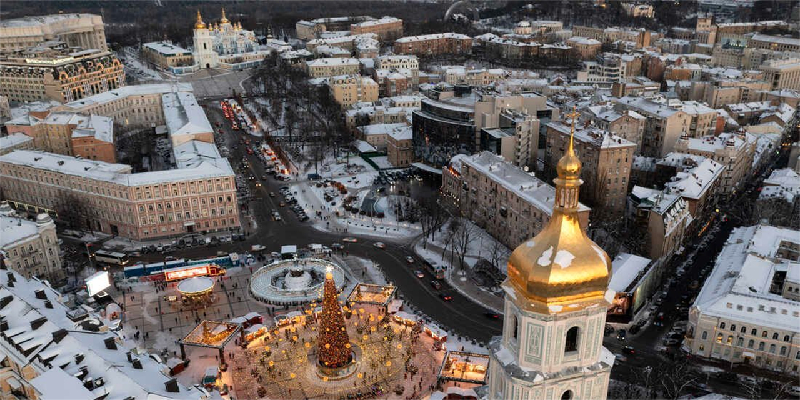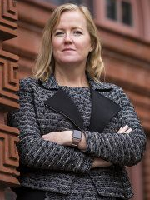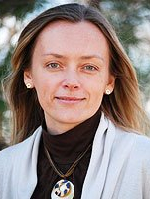
- This event has passed.
Fletcher and Tufts Faculty Discuss the Ukraine-Russia War
March 2, 2022 @ 5:30 pm - 7:00 pm

Please join the Russia and Eurasia Program at The Fletcher School for a conversation with professors of The Fletcher School and Tufts University. They will discuss Russia’s invasion of Ukraine, its implications for European security, and its impact on the global economy. The event is open to the public. Please make sure to register via myFletcher to participate in the event either in person or via Zoom.
Speakers:
 | Ian Johnstone is a Professor of International Law at The Fletcher School at Tufts University. From 2018 -2019 he served as Dean ad interim. From 2013 to 2015, he was the Academic Dean. Prior to joining Fletcher in 2000, Johnstone served in the United Nations’ Executive Office of the Secretary-General and Department of Peacekeeping Operations. He continues to work as an occasional consultant to the United Nations. His most recent books include Legal Argumentation Beyond Courts (Co-editor, Oxford University Press, forthcoming 2021); The Oxford Handbook on International Organizations (Co-editor, Oxford University Press, 2016); Law and Practice of the United Nations, 2nd edition (co-author, Oxford University Press, 2016); and The Power of Deliberation: International Law, Politics and Organizations (Oxford University Press, 2011). While on sabbatical in 2020, he was a Visiting Professor jointly at the University of Toronto Faculty of Law and Munk School of Global Affairs and Public Policy. From 2005-2007, he was the lead author and founding editor of the Annual Review of Global Peace Operations. He is currently on the editorial boards of Global Governance Journal and International Organizations Law Review. He is also a Non-Resident Senior Fellow at the Center on International Cooperation, New York University and a Member of the International Advisory Board of the International Peace Institute. Johnstone, recipient of the James L. Paddock Teaching Award in 2005, teaches courses in international organizations, peace operations and nuclear non-proliferation. A citizen of Canada, he holds an LL.M degree from Columbia University and JD and B.A. degrees from the University of Toronto. |
 | Daniel W. Drezner is professor of international politics, a nonresident senior fellow at the Brookings Institution, and a contributing editor at The Washington Post. Prior to joining The Fletcher School at Tufts University, he taught at the University of Chicago and the University of Colorado at Boulder. He has previously held positions with Civic Education Project, the RAND Corporation and the U.S. Department of the Treasury, and received fellowships from the German Marshall Fund of the United States, Council on Foreign Relations, and Harvard University. Drezner has written five books, including All Politics is Global (2008) and Theories of International Politics and Zombies (2011) and edited two others, including Avoiding Trivia (2009). He has published articles in numerous scholarly journals as well as in The New York Times, Wall Street Journal, Politico, and Foreign Affairs, and has been a contributing editor for Foreign Policy and The National Interest. He received his B.A. in political economy from Williams College and an M.A. in economics and Ph.D. in political science from Stanford University. His blog for Foreign Policy magazine was named by TIME as one of the 25 best blogs of 2012, and he currently writes the Spoiler Alerts blog for The Washington Post. |
 | Monica Duffy Toft is a professor of international politics and director of the Center for Strategic Studies at The Fletcher School of Tufts University. Before joining Fletcher, Professor Monica Duffy Toft taught at Oxford University’s Blavatnik School of Government and Harvard University’s John F. Kennedy School of Government. While at Harvard, she directed the Initiative on Religion in International Affairs and was the assistant director of the John M. Olin Institute for Strategic Studies. She was educated at the University of Chicago (M.A. and Ph.D. in political science) and at the University of California, Santa Barbara (B.A. in political science and Slavic languages and literature, summa cum laude). Prior to this, she spent four years in the United States Army as a Russian linguist. Monica’s areas of research include international security, ethnic and religious violence, civil wars and demography. Her most recent books include: Securing the Peace (Princeton, 2011); Political Demography (Oxford, 2012); and God’s Century (Norton, 2012). In addition she has published numerous scholarly articles and editorials on civil wars, territory and nationalism, demography, and religion in global politics. Monica can also be found on Twitter @monicaduffytoft. |
 | John Shattuck is Professor of Practice in Diplomacy at The Fletcher School and a Senior Fellow at the John F. Kennedy School of Government at Harvard University. Previously he was U.S. Assistant Secretary of State for Democracy, Human Rights, and Labor under President Bill Clinton (1993-1998), where he played a key role in the establishment by the United Nations of the International Criminal Tribunals for Rwanda and former Yugoslavia. He later served as U.S. Ambassador to the Czech Republic (1998-2000), CEO of the John F. Kennedy Library Foundation (2001-2009), a Lecturer and Senior Fellow at Tufts University (2007-2009), and the fourth President and Rector of Central European University in Budapest, Hungary (2009-2016). He has published over a dozen books and book chapters and more than fifty articles on U.S. foreign policy, human rights, civil liberties, and higher education. He chairs the Advisory Board of the Center on Ethics, Justice, and Public Life at Brandeis University and is a member of the Council on Foreign Relations and a fellow of the American Academy of Arts and Sciences. |
 | Oxana Shevel is an Associate Professor in the Department of Political Science at Tufts University. Her research and teaching focus on the post-Communist region surrounding Russia and issues such as nation- and state-building, the politics of citizenship and migration, memory and religious politics, and challenges to democratization in the post-Soviet region. She is the author of Migration, Refugee Policy, and State Building in Postcommunist Europe (2011), which examines how the politics of national identity and strategies of the United Nations High Commissioner for Refugees shape refugee admission policies in the post-Communist region, leading countries to be more or less receptive to refugees. Shevel’s current research projects examine the sources of citizenship policies in the post-Communist states; church-state relations in Ukraine; the origins of separatist conflict in Donbas; and memory politics in post-Soviet Ukraine. Shevel holds a Ph.D. in Government from Harvard University, an M.Phil in International Relations from the University of Cambridge in England, and a B.A. in English and French from Kyiv State University in Ukraine. Prior to coming to Tufts, she taught at Purdue University and held post-doctoral appointments at the Davis Center for Russian and Eurasian Studies and at the Harvard Ukrainian Research Institute. |
